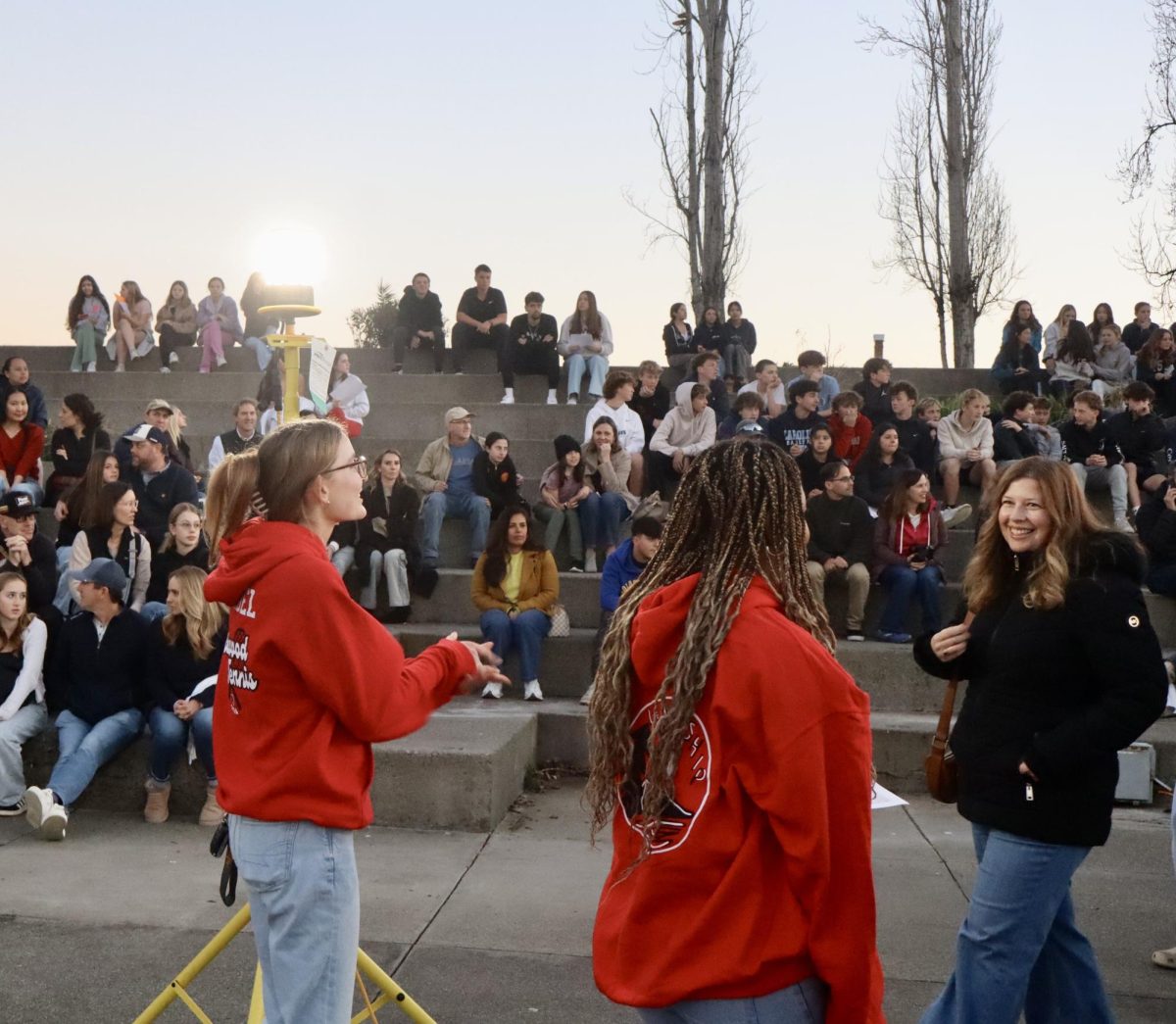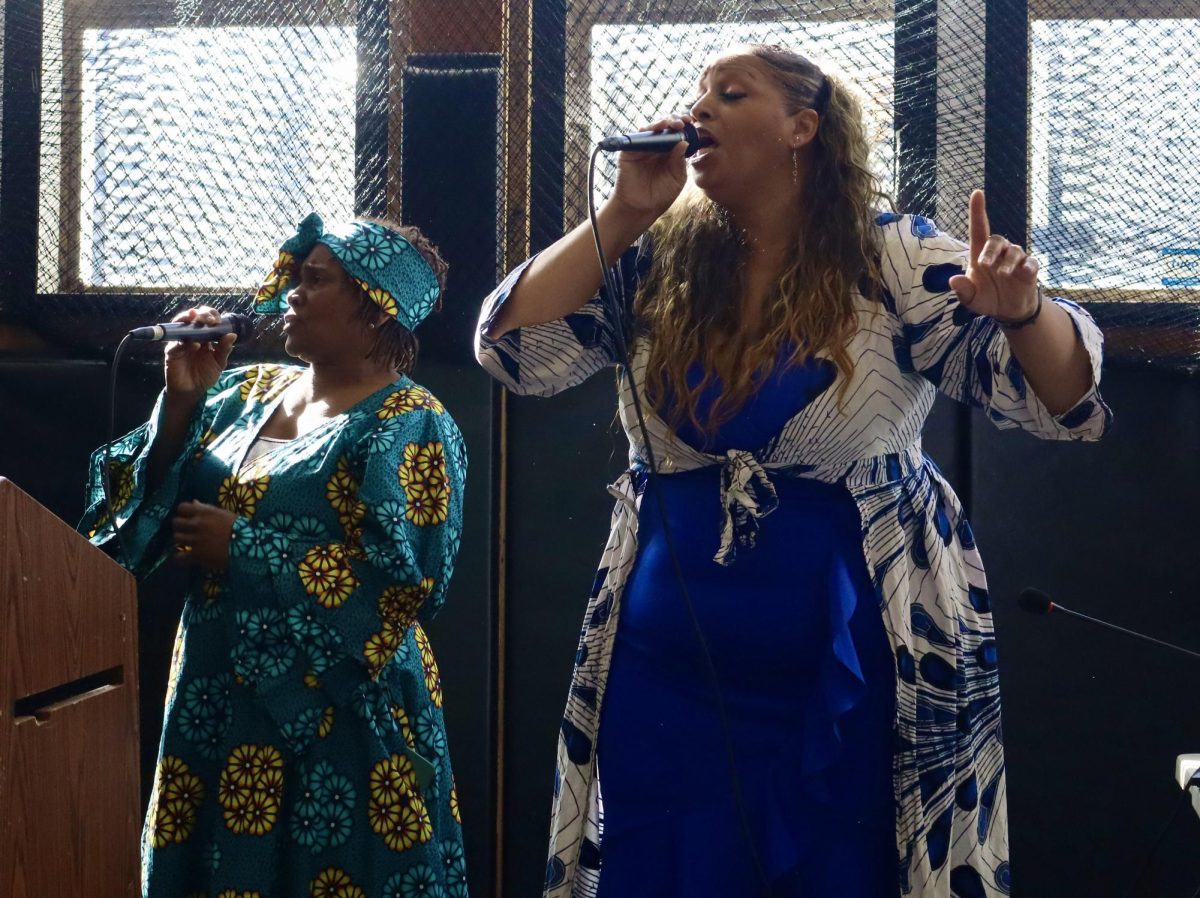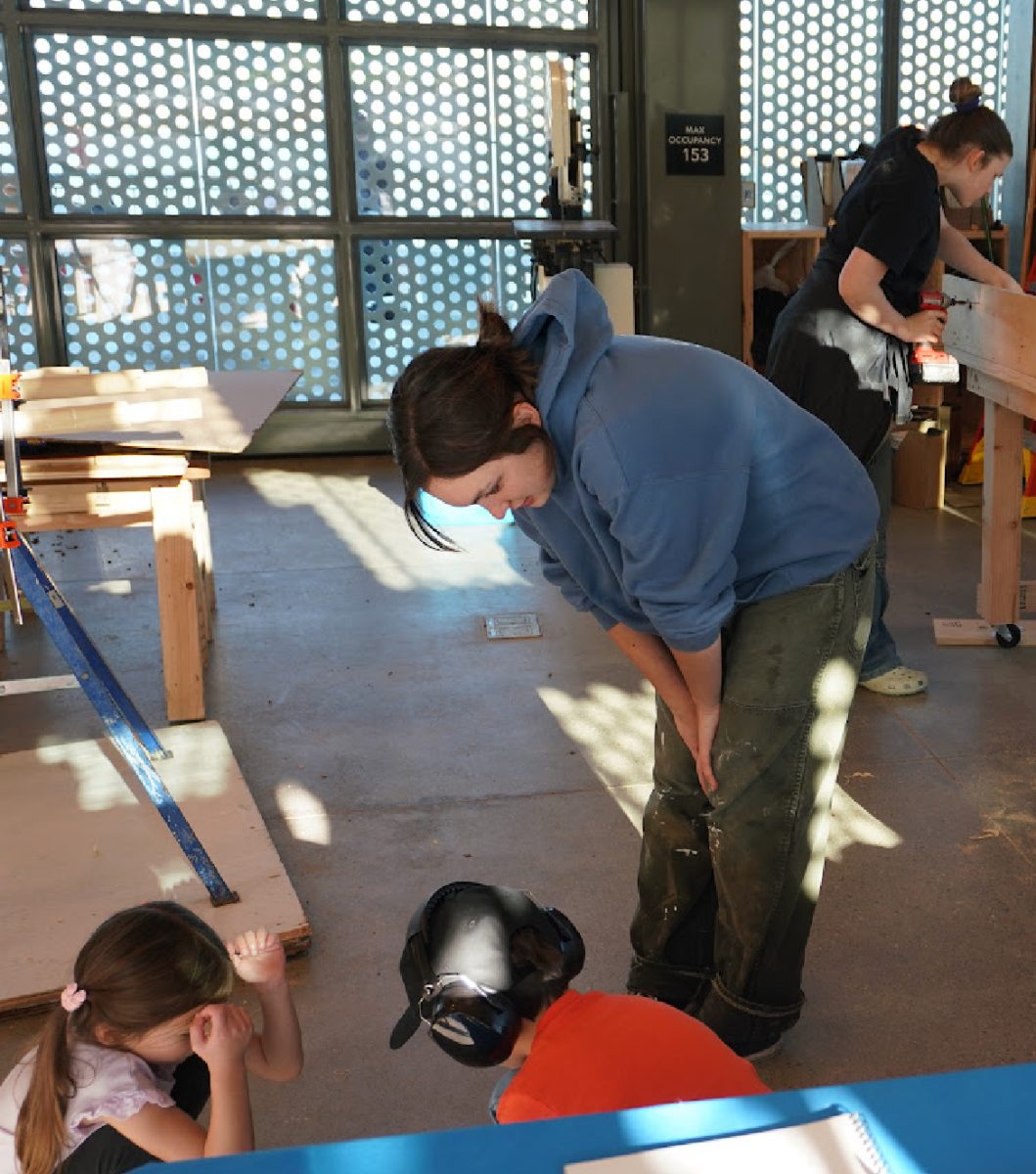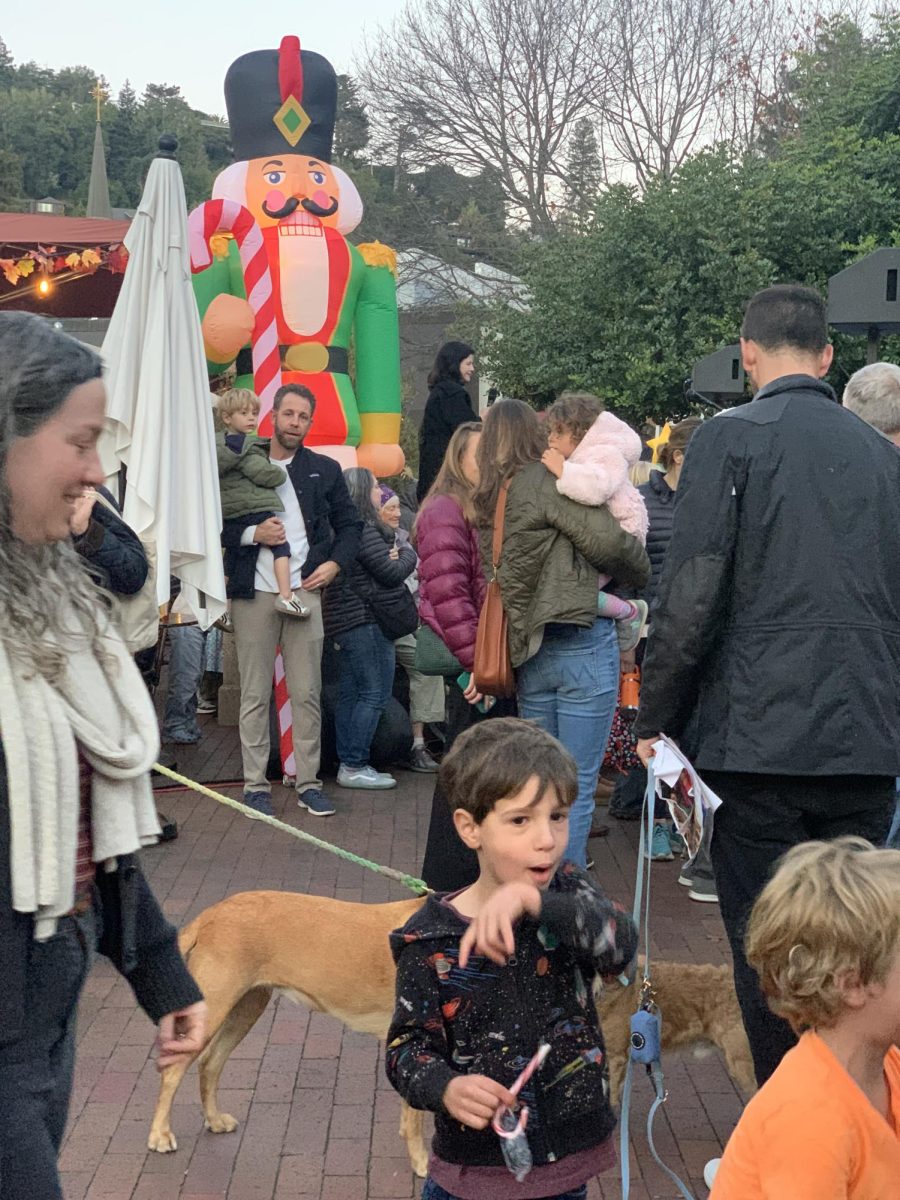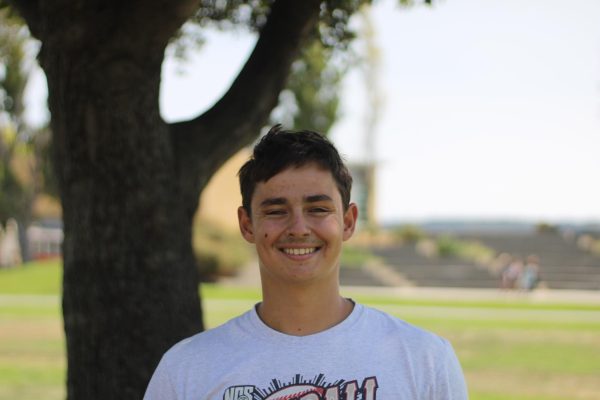“We all need to have a more accepting worldview. Being different is amazing. If we’re all the same then nobody brings anything unique to the world. We need to respect and value those differences.” Mendel Mishlovin, Rabbi of Chabad of Marin, said.
On Tuesday, Oct. 22, Holocaust survivor Regina Rummel spoke to Redwood students alongside her daughter Gigi Casey, friend Alie Berka and Rabbi Mishlovin. Rummel spoke about her experiences during World War II as a Jewish person in France, touching on the prejudice and discrimination she suffered. Sharing her story is a sensitive task, but she continues to do so because she understands the power of her history.
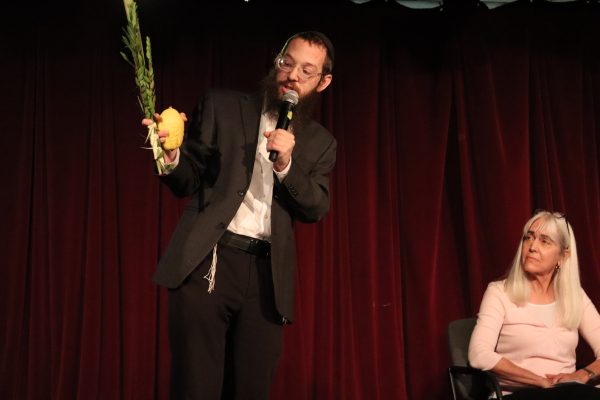
“It’s not easy for me to speak on my experiences, but I know how important my story is and [students] need to hear it. I hope that my story can help any students who are targeted [and that] students can learn to accept and appreciate [each other],” Rummel said.
Rummel grew up in a Jewish neighborhood in Paris, France, but was forced to move to a small town in the south after their apartment burned down. Living outside of the city was a big cultural shift for Rummel, making her feel isolated in her new home.
“There were no Jewish families [in this town]; everyone was Catholic. There was no synagogue and we couldn’t even practice religion. Just like in the U.S., these kids all had Southern accents and constantly made fun of me for speaking like an urban kid,” Rummel said. “One day they asked me why I killed Jesus and that’s when I realized I was seen as an outsider.”
When the Nazis invaded France, Rummel and her family were initially safe, as the Armistice of 1940 kept the south mainly under French control.
“The fire was almost a blessing in disguise because it sent us away from Paris, which the Nazis occupied while we were safe in the south,” Rummel said.
As Jewish people fled south to find safe refuge, Rummel and her family started taking in strangers looking for safety. The Jewish community relied on each other during these devastating times.
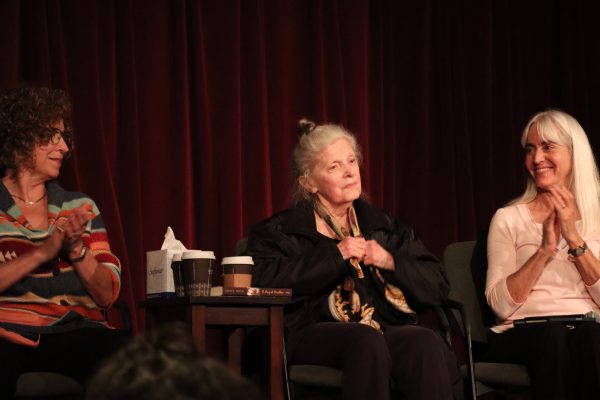
“I had to share my twin bed with a stranger. I didn’t want to share, but in tough times, we had to help each other. Without each other, we would have nothing,” Rummel said.
However, when the Nazis broke the Armistice and entered the south of France, the family was forced to leave town.
“One day, someone knocked on the door. It was a friend of my father’s. He told us that the Germans just took over the police station and asked for a list of all the Jewish people in town. He said to grab whatever we could and get out as soon as possible,” Rummel said.
They fled in the night carrying whatever belongings they could in their hands. Before Rummel left, she grabbed her most important belongings: books.
“There was no fun or entertainment, never much for us to do. The books were the only pleasure I had. I would read and reread books over and over again. It distracted me and put me in my own fantasy world, helping me escape from the harsh realities,” Rummel said.
Rummel and her family were able to find safety on an isolated farm in the mountains, living with a family kind enough to take them in. On the farm, life was quiet and Rummel continued to rely on her passion for reading to keep herself entertained.
“We took a cab to a farm even further south and stayed at a farm for a while. It was in the middle of nowhere in an isolated mountain town. Thank God I had my books because I had nothing to do; it was so dull,” Rummel said.
However, they were forced to flee again after the young daughter of their host family mistakenly told members of the town that they were housing a Jewish family.
“The little girl, who did not know any better, had advertised that there were Jews living in the house. We had to leave immediately and move to a new place,” Rummel said.
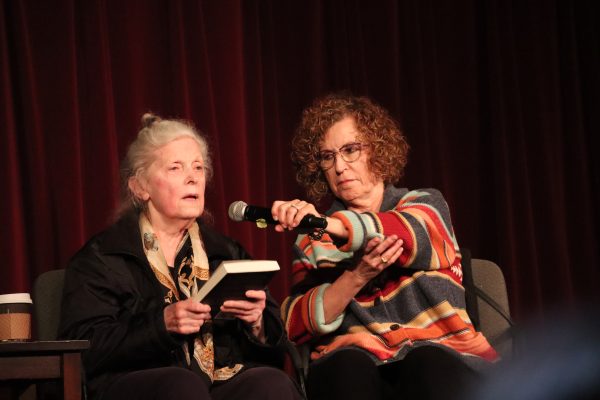
Rummel and her family spent the rest of the war at another farm, an abandoned one. They experienced multiple close calls but avoided capture, as Rummel recalled seeing Nazi soldiers march outside through the window. Unfortunately, many of Rummel’s family members were not as lucky, with her entire extended family perishing in the war.
“All of my relatives and [extended family] in Poland died. We tried to find them after the war; we looked so hard, and not a single one made it out alive. We were the only ones,” Rummel said.
Throughout the war, Rummel relied on her faith, prayer and belief to ensure she would make it out alive.
“I asked God for two wishes: please make this war end and make me another Joan of Arc. I wanted to save the country of France from the Nazis,” Rummel said.
When the Allies landed in Normandy, her father promised they would leave France if they survived. After the war ended in 1945, the family obtained visas immediately and immigrated to New York.
To this day, Rummel struggles to publicly express her Jewish heritage because of the persecution she faced as a child.
“When I lived in the south of France, my ration card had a Jewish stamp on it and in a town of Catholics, it made me feel humiliated and less than. I still [refuse] to wear my necklace with the Star of David because of [what I went through],” Rummel said.
At 94 years old, Rummel is still thriving and shares her story to inspire others and educate individuals on the horrific events of the Holocaust.



